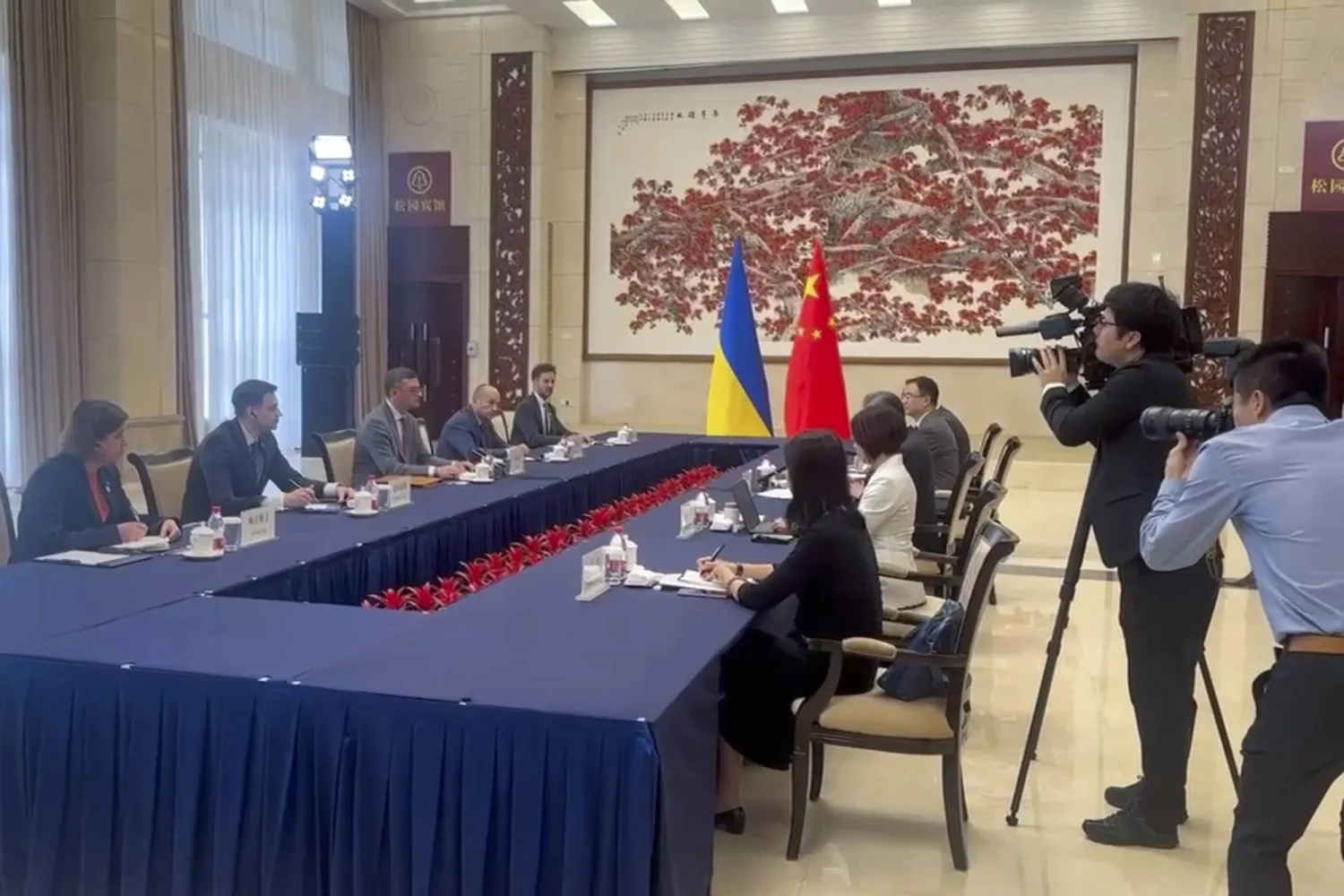Ukraine's Foreign Minister Dmytro Kuleba has said he is seeking “common ground” in talks this week with his Chinese counterpart on ending his country's war with Russia.
Kuleba met Wednesday with Foreign Minister Wang Yi in Guangzhou, a major commercial and manufacturing center in southern China. It is the first visit to the country by a Ukrainian foreign minister since Russia's invasion of Ukraine, which has strained Ukraine's relations with China.
“I am convinced that a just peace in Ukraine is in China’s strategic interests, and China’s role as a global force for peace is important,” Kuleba said in opening remarks.
China has close ties with Russia and has pushed for an end to the war that would take into account the interests of both sides. That position has put it at odds not only with Ukraine but also Western European countries and the United States, which are demanding a Russian withdrawal as the basis for any settlement.
China did not participate in a peace conference in Switzerland last month that did not include Russia.
Kuleba was expected to lobby Chinese officials to attend another peace conference planned for sometime before the American presidential election in early November. His visit reflects a calculation that any peace deal favorable to Ukraine would likely be a non-starter without China on board.
Chinese officials maintained that the two countries have friendly and cooperative relations. Noting the growth in trade between them, Wang said in his opening remarks that ties have continued to develop normally “despite complex and ever-changing international and regional situations.”
Kuleba arrived in China on Tuesday and is scheduled to depart on Friday. In a video posted late Tuesday on his social media accounts, Kuleba said he would have extensive negotiations to look for common ground in the pursuit of peace in Ukraine.
“We need to move to a just and stable peace,” he said, according to a translation posted by Euromaiden Press, an English-language news site on Ukraine. “China can play a significant role in this. Let’s go," The Associated Press quoted him as saying.
His visit follows a rare public rebuke of China by Ukrainian President Volodymyr Zelenskyy in June. Zelenskyy accused China of helping Russia block countries from participating in the Swiss peace conference. China denied pressuring others.
It was the first time Zelenskyy had departed from careful attempts to court Beijing away from its strong relationship with Moscow.
China published a separate six-point peace plan with Brazil ahead of the conference. The move and the timing likely angered Ukrainian officials who were in the midst of seeking support for their peace proposal.
"We must avoid the competition of peace plans," Kuleba said in his social media video this week.









